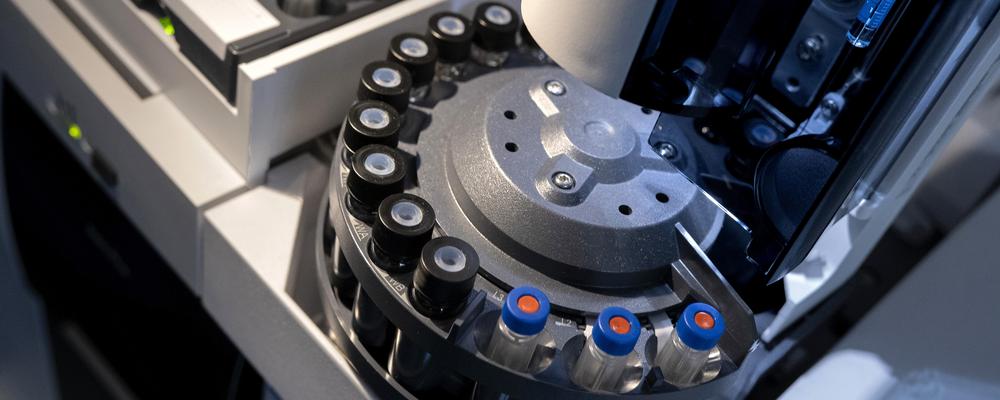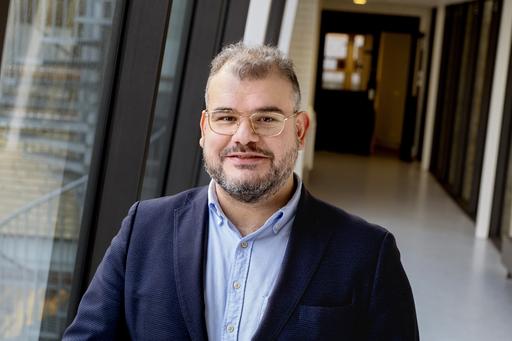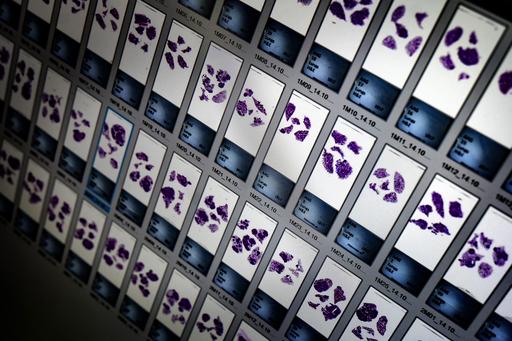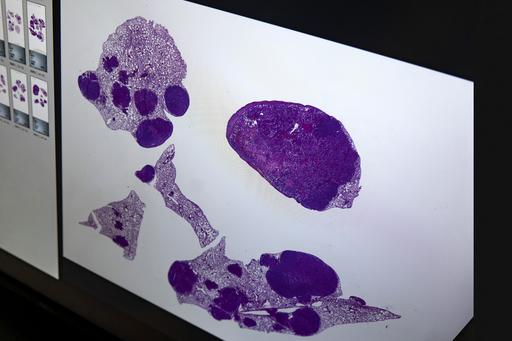
- Home
- News and events
- Find news
- Groundbreaking research on individually tailored precision medicine for treating lung cancer
Groundbreaking research on individually tailored precision medicine for treating lung cancer
The prognosis for lung cancer is worse than most cancer types, but development of new treatments is advancing quickly. Volkan Sayin and his research team have recently concluded that patient age plays a significant role in how lung cancer develops. This knowledge may ultimately change research and treatments alike. They are also studying the impact of diet and its potential for use in treatment. SEK 3 million from Lundberg’s Research Foundation has been awarded for sophisticated cell analysis equipment that will take this research to new levels.
Around 4,000 individuals are diagnosed with lung cancer every year in Sweden. In recent years, improved treatments have led to a better prognosis, but it is still worse overall than for many other types of cancer. To some extent this is because lung cancer is often quite advanced when it is detected. Traditional treatments, such as chemotherapy and radiation, are being applied more and more effectively. At the same time, new treatments are being developed. There are several different types of lung cancer, and every patient is unique. Volkan Sayin, Principal Investigator and Associate Professor and at the University of Gothenburg’s Institute of Clinical Sciences, is studying lung cancer with the aim of developing individually tailored precision medicine.

– We are looking at many different kinds of individually tailored precision medicine, and we want to generate understanding that allows the medical care system to characterize patients more effectively and see what therapies and additional treatments they should receive. You might say we’re looking for the Achille heel of cancer. For example, the growth of cancer could be due to some form of mutation in our DNA leading to a protein changing and developing new characteristics. If we’ve identified the mutation, we can often target it with a drug to slow the cancer down, Volkan Sayin explains.
Revolutionary findings regarding the significance of age
Most people diagnosed with lung cancer are between 60 and 80 years old. A patient’s age impacts neither the treatment received nor its strength. What does make a difference is the patient’s general state of health, assessed on a scale from zero to five, called the ECOG (Eastern Cooperative Oncology Group). Thus, an otherwise healthy 75-year-old may receive a much stronger cancer treatment than a 27-year-old who is bedridden due to injury. But this could change. Volkan Sayin and his team have discovered that an individual’s age plays a major role in how lung cancer develops, which may be very significant for how to best design effective treatment.
– I had trouble believing the results at first; they are so counter-intuitive to what both therapy and research are currently based on. But we’ve now observed in several studies that the exact same type of lung cancer produces a completely different course of disease in older people than younger people, which can significantly impact how well cancer therapies work, says Volkan Sayin.
Unexplored area
His research shows that in older animals, lung tumors grow much slower in the lung while instead being more efficient at spread to other distant organs, findings that have been confirmed in people with diagnosed lung cancer. This realization could have a significant impact since research and development are all based on young people: for example, most participants in clinical studies are young. Statistics also show that when drugs are used in practice, they are not at all as effective as in clinical studies. According to Volkan Sayin, this is because new therapies are tested more in healthy young people in clinical trials and then used on patients who are almost always much older.
– When I talk to doctors who treat lung cancer patients, they talk about young patients with aggressive lung cancer who recover almost miraculously; it goes incredibly well for them. No one has investigated why. Now we understand that it’s because the standard treatment is optimized for that patient group. The importance of age when it comes to cancer development is a new dimension that is essentially unexplored.

Diet as a possible part of treatment
Individuals with cancer are often influenced by different theories about the importance of diet and its ability to help. This leads to some people to try eliminating sugars, eating fatty foods, or taking various dietary supplements with high levels of vitamins and minerals. Currently there is no scientific evidence that this would help cancer therapy. Instead, many studies have shown that dietary and supplementary interventions could worsen the outcome for individuals with a cancer diagnosis, which is why Volkan Sayin is also studying diet in connection to lung cancer–both how diet affects the patient and whether it could play a role in treatments.
– We are going in with open-ended questions and studying the consequences of diets, there advantages and disadvantages. At the same time, we’re mapping the metabolism of cancer cells. Hopefully in the future we’ll be able to create individually tailored precision diets that can help treatment. We’re also learning important information about diets and dietary supplements that could potentially have negative effects. One problem is that every case of lung cancer is one of several different types of cancer, and there are studies that show that a certain diet may make lung cancer worse in one case and be protective in another.
A belief in advancements with new technology
The overarching goal for Volkan Sayin and his research team is to cure cancer. Their research focuses primarily on studies of lung cancer, but the findings are often also applicable to other types of cancer, which are often driven by similar mutations and metabolic changes. Volkan Sayin describes his research as molecular detective work. It includes studying cancer cells and immune cells, both separately and together, and seeing how they react to different types of influences, such as drugs, diets, nutrients, metabolites, and more. A grant of SEK 3 million from Lundberg’s Research Foundation will be used to purchase an Incucyte SX5, which is a modern and sophisticated device for imaging and analyzing live cells. Volkan Sayin expects to make major advancements with this new technology:
– We already have fairly sophisticated equipment, but this device will make a big difference. We’ll get more done in less time and with higher quality. It also adds important new dimensions. For example, we can study cancer cells and immune cells simultaneously in real time, including interactions between the cells, and try different new kinds of precision treatments in various combinations in more realistic biological environments and at a large scale. This will take our research to entirely new levels!

BY: LUNDBERGS FORSKNINGSSTIFTELSE
PHOTO: MAGNUS GOTANDER

